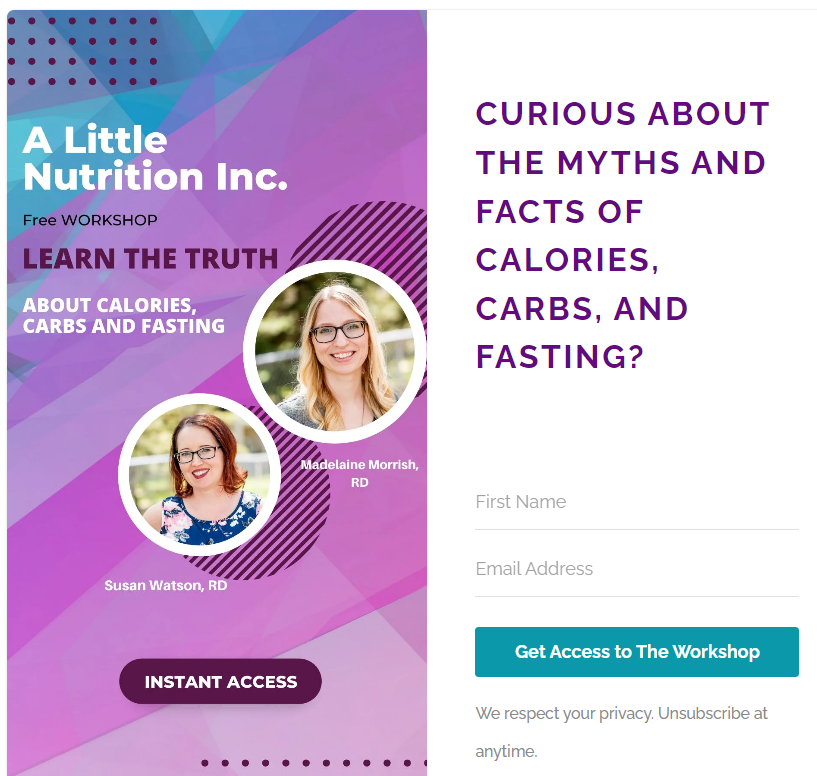Beat the bloat! Nutrition strategies to reduce the feeling of bloating.
Do you ever feel uncomfortably bloated? Bloating can often cause pain, discomfort, and a “stuffed” feeling in many people. Bloating is the sensation of pressure in the abdomen caused by an accumulation of gas, resulting in flatulence, burping and abdominal pain.
Madelaine Morrish, registered dietitian at A Little Nutrition, was on Global News recently sharing her strategies on how to prevent and/or reduce that feeling of bloating. Check out the replay here:
3 Tips To Help You With Bloating
Tip #1: Slow down and taste your food.
Eating too quickly and not bringing awareness to your fullness cues can set you up for feeling bloated. Bloating is really a result of our body having difficulty breaking foods down. When we eat meals quickly or eat while we’re distracted and do not truly experience the food, we have an increased potential for overeating. Overeating can result in our digestive tract feeling overwhelmed with the amount of food it now needs to break down.
Tip #2: Boost your diet and include fibre-rich foods + consistently.
If you’re feeling constipated? Constipation can contribute to bloating because a sluggish digestive tract has difficulty clearing out gas effectively. To prevent and manage constipation, women =25 grams /men= 38 grams. Fibre stimulates our gut to move and increases the growth of bacteria necessary to keep our digestive tract healthy. Demo foods that are rich in fibre.
Tip #3: Know your triggers.
Everyone’s bloating and where along the digestive tract they experience it is unique, in that one food or dietary pattern that contributes to symptoms in one individual may not cause discomfort in another. It can be helpful to keep a food and symptom journal to increase your awareness.
Some common foods that can contribute to more bloating include:
- High-fat foods because they digest slowly
- Carbonated beverages as they increase gas in the digestive tract
- Some individuals may be more sensitive to certain short-chain sugars called FODMAPs.
Working with a trained Registered Dietitian can help you make sense of what your personal triggers are and help you manage your symptoms, especially if they are affecting your quality of life.
DO YOU NEED HELP WITH YOUR DIGESTION? HERE’S HOW TO GET STARTED.
- To book an appointment with one of our Registered Dietitians or therapists, you can:
- Phone: 204-515-7466
- Email: admin@alittlenutrition.com
- Book online: https://alittlenutrition.janeapp.com
GET OUR HABIT TRACKING TOOL!
Sign up and we will be deliver it right into your inbox!







